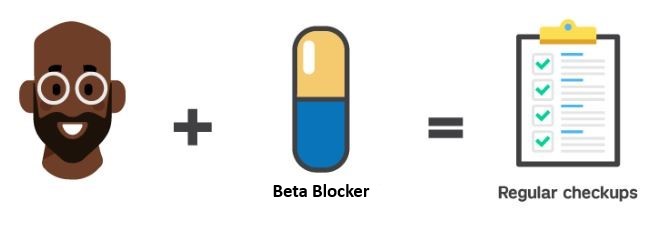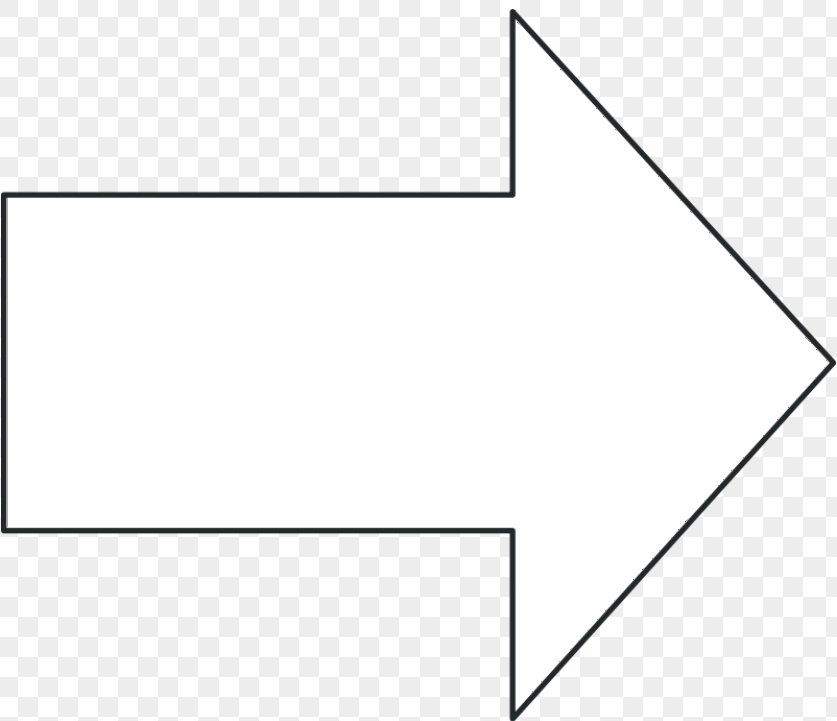Manufacturers recommend that patients should be closely monitored when beta blockers are initiated, adjusted, or discontinued.1-6 Close monitoring is especially required during titration and cessation of treatment. Abrupt cessation of therapy must be avoided.
Blood Pressure Monitoring and Checkup Frequency
Patients should have their blood pressure regularly checked to determine their response to beta blockers and should return for a follow-up appointment monthly until blood pressure control is met.7,8 The 2017 ACC/AHA Hypertension Guidelines found strong evidence supporting other strategies to improve control of blood pressure in patients on antihypertensive therapy including the use of home blood pressure monitoring, team-based care (e.g., nurse care manager, pharmacist, doctor), and telehealth strategies [Strong Recommendation (Level A)].8 A combination of home blood pressure monitoring, telehealth, and team-based care led to better blood pressure outcomes than office-based follow-up alone.9-13 At the follow-up checkup, the doctor will measure blood pressure and assess for adverse effects.7,8 Patients with more severe hypertension (≥160 systolic blood pressure or ≥100 diastolic blood pressure) will need close and frequent follow-up until blood pressure is controlled.7 Once the blood pressure goal is met and stable, visits can be at three- to six-month intervals.
Blood Glucose Monitoring
Manufacturers caution diabetic patients to closely monitor blood glucose as beta blockers may mask symptoms of hypoglycemia or worsen hyperglycemia, and mask tachycardia that occurs with hypoglycemia.1-6,14 Beta blockers can also further enhance lowering of blood sugar levels if taken with insulin or oral hypoglycemic medications. Blood glucose should be monitored when beta blocker dosing is initiated, adjusted, or discontinued in patients with diabetes.
Renal Function Monitoring
Some beta blockers (e.g. atenolol) are eliminated primarily by the kidney,1 whereas other beta blockers are metabolized primarily by the liver.2,3,6,15 For those that are eliminated primarily by the kidney, creatinine levels should be regularly assessed in order to monitor renal function.1 Elimination of the drug can be impaired with renal function impairment. The drug can accumulate significantly when creatinine clearance falls below 35 mL/min/1.73m2. Even for beta blockers primarily metabolized by the liver, dosage adjustments may be required in cases of severe renal dysfunction.4,5,14
Thyroid Function Monitoring
Beta blockers can mask symptoms of hyperthyroidism.1-6 Manufacturers warn against abrupt cessation of beta blockers as it can worsen hyperthyroidism or cause thyroid storm. Patients who may be developing thyrotoxicosis should be monitored closely while undergoing beta blocker withdrawal.
References
- Tenormin [package insert]. Conovanas, PR: AstraZeneca Pharmaceuticals LP; 2011.
- Metoprolol succinate extended-release tablets [package insert]. Sodertalje, Sweden: AstraZeneca AB; 2006.
- Lopressor [package insert]. East Hanover, NJ: Novartis Pharmaceuticals Corporation; 2008.
- Coreg CR [package insert]. Ciales, PR: GK Pharmaceuticals Contract Manufacturing Operations; 2008.
- Coreg [package insert]. Ciales, PR: GK Pharmaceuticals Contract Manufacturing Operations; 2008.
- Bystolic [package insert]. St. Louis, MO: Forest Pharmaceuticals; 2011.
- Chobanian AV, Bakris GL, Black HR, et al. The Seventh Report of the Joint National Committee on prevention, detection, evaluation, and treatment of high blood pressure: the JNC 7 report. JAMA. 2003;289(19):2560-2572.
- Whelton PK, Carey RM, Aronow WS, et al. 2017 ACC/AHA/AAPA/ABC/ACPM/AGS/APhA/ASH/ASPC/NMA/PCNA Guideline for the prevention, detection, evaluation, and management of high blood pressure in adults: a report of the American College of Cardiology/American Heart Association Task Force on Clinical Practice Guidelines. J Am Coll Cardiol. 2018; 71 (19): e127-e248.
- Margolis KL, Asche SE, Bergdall AR, et al. Effect of home blood pressure telemonitoring and pharmacist management on blood pressure control: a cluster randomized clinical trial. JAMA. 2013;310(1):46-56.
- Bosworth HB, Powers BJ, Olsen MK, et al. Home blood pressure management and improved blood pressure control: results from a randomized controlled trial. Arch Intern Med. 2011;171(13):1173-1180.
- Brennan T, Spettell C, Villagra V, et al. Disease management to promote blood pressure control among African Americans. Popul Health Manag. 2010;13(2):65-72.
- Bosworth HB, Olsen MK, Grubber JM, et al. Two self-management interventions to improve hypertension control: a randomized trial. Ann Intern Med. 2009;151(10):687-695.
- Green BB, Cook AJ, Ralston JD, et al. Effectiveness of home blood pressure monitoring, Web communication, and pharmacist care on hypertension control: a randomized controlled trial. JAMA. 2008;299(24):2857-2867.
- Trandate [package insert]. Oakville, ON: Prometheus Laboratories Inc.; 2010.
- Metoprolol succinate extended-release tablets [package insert]. Sodertalje, Sweden:AstraZeneca AB; 2006.



